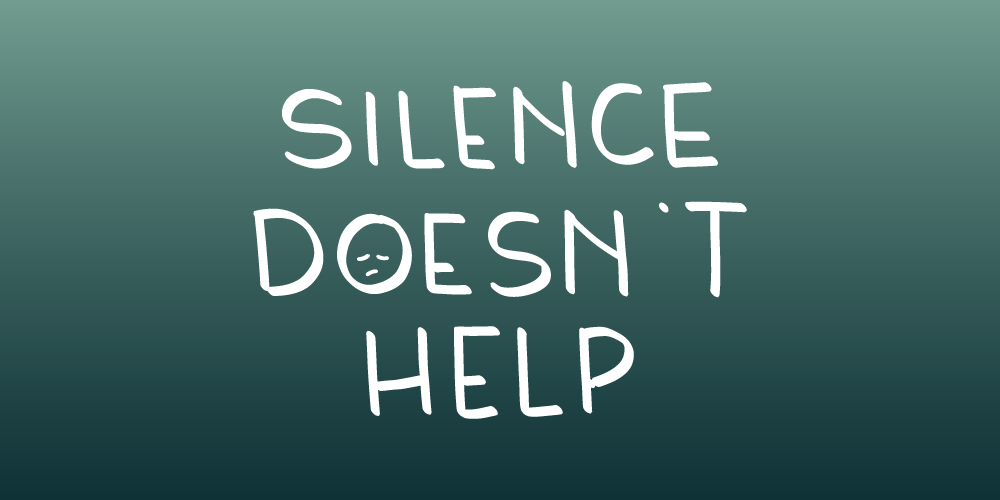Learn About
Intetion and Action
How to Respond with Compassion when Someone is Hurt by Racism—By Trinh Mai and Jean Whitlock
How to Get In the Habit of Talking About Diversity—By Rita Aguilar
Build Team Connection by Exploring Implicit Bias—By Maia Hightower
What Will You Do With Your Privilege? A Personal Lesson About Allyship—By Michael Danielson
hen I was considering whether to pursue a master’s degree in nursing, a mentor encouraged me to explore some of my other interests as a way to develop my leadership skills. The result was a degree-off-the-beaten path for a nurse: a master’s degree in marriage and family therapy.
Over the years I’ve learned, as a nurse leader and therapist, that having hard conversations in the workplace is critical to our role of making the hospital a place of healing—not just for our patients, but for all of us who work here.
With American adult stress levels at the highest they have been since the beginning of the pandemic, our ability to have hard conversations is perhaps more important than ever. We have the responsibility to acknowledge the suffering of our colleagues and patients in a way that validates their experiences.
Resist the temptation to “fix it”
We live in a culture where emotion is confused for weakness. When confronted with emotion, we typically have several common responses. Out of discomfort, we try to change the subject. We may ignore it by remaining silent. We may diminish it by saying that it’s not that bad. Or we may try to fix it by proposing solutions. While the harm from these kinds of responses may be unintentional, it isn’t OK.
I come to you as a guilty party. As a nurse, I’ve been trained to adopt a problem-solver mindset. We are trained to find problems and then solve them. While it's okay to find the problem—a colleague suffering in the workplace—what we do next becomes super important. We can choose to listen, or we can feel threatened and give in to the pressure to ignore, dismiss, or fix. And in doing that, we actually make it about us instead of the person in need.
"We can choose to listen, or we can feel threatened and give in to the pressure to ignore, dismiss, or fix. And in doing that, we actually make it about us instead of the person in need."
Our job is to not allow ourselves to go into the fix-it mindset, but to stay in the moment with the person. We actually abandon them, believe it or not, when we step into the fix-it role. Staying in the moment with the person looks like listening, like hearing them out. It is not giving into the pressure you may feel to jump to the next thing.
Go to the hard place
Creating space for our colleagues means being present with them so that they can do their own internal emotional work and processing. This work can be difficult because we have to make the implicit explicit. For example, it may require talking about skin color. We can't dodge it by saying, "This isn't about race.” We have to be willing to step into that area. If we do it with respect, acknowledging our biases or our naivety, we can go there, but we have to be willing to own and acknowledge that.
Validate experiences
I feel strongly about celebrating the uniqueness and the individuality of our staff members. Celebrating difference does not take away from the greater whole. On the contrary, failing to celebrate can make us lose the opportunity to validate each other for our unique gifts and talents.
There's so much empowerment that comes when we're willing to see people as people and experience them as such. And at the end of the day, we're all people. People need to feel connected, not like another problem to be fixed.
Preston Dahlgren
Microaggressions commonly occur in medical settings creating psychologically unsafe environments of learning, working, and healing. Pediatricians Reena Tam and Margie Diaz-Ochu share how clinician-educators can cultivate awareness and practical tools to create safer, braver spaces in the moment.
Your social media feeds are awash with tips for working from home, but how do you lead from home? Karen Wilson and Dawn Newberry, of University Medical Billing, have led remote teams for years. Their experience boils down to one principle: build and maintain connection.
The crises of Covid-19 and police brutality have highlighted systemic racial inequity in the United States and the need to consciously dismantle the forces that cause racial health disparities. PA students Scarlett Reyes and Jocelyn Cortez brought together Black patients at the University of Utah to share their experiences. Their advice: build cultural competence and be mindful of microaggressions.
